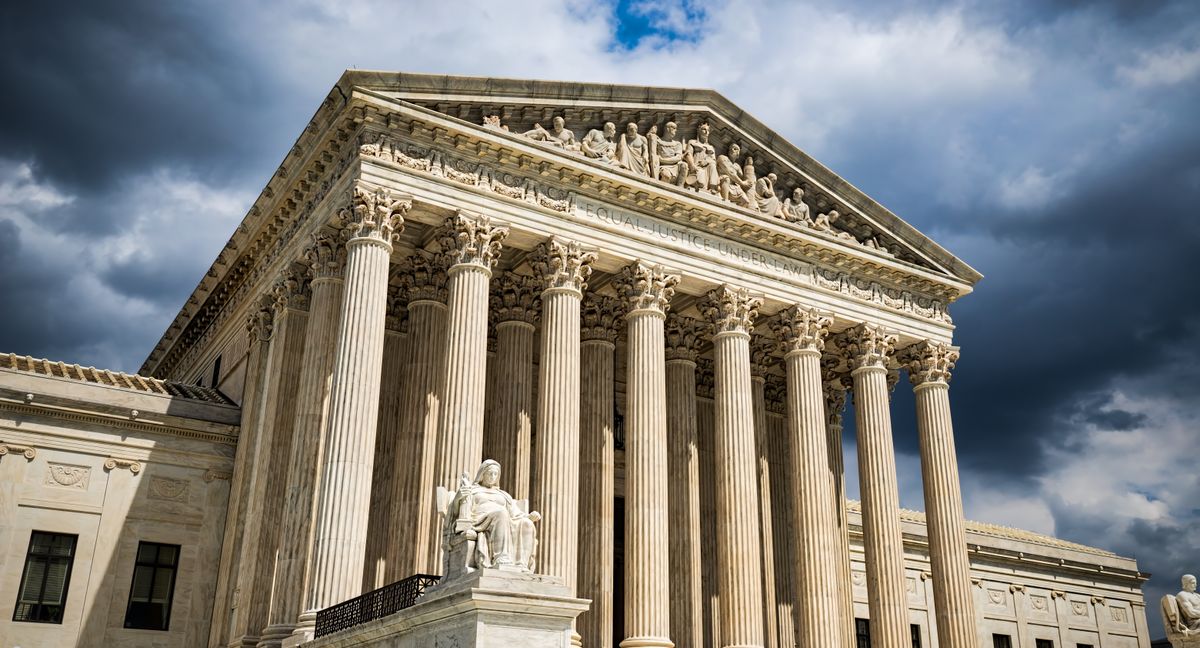The Supreme Court has heard three cases this term on the vexing free-speech question of how hard government can lean on private businesses either to suppress speech the government dislikes, or to prevent private business from suppressing speech the businesses dislike. The first of those three decisions came today, in National Rifle Ass’n v. Vullo, a lawsuit by the NRA against New York state’s efforts to use state power to “debank” pro-gun-rights groups. It was a unanimous rout in the NRA’s favor, with the Court’s opinion written by Justice Sonia Sotomayor and the two concurring justices (Neil Gorsuch and Ketanji Brown Jackson) joining the opinion and writing only to signal ways in which the Court may be more divided in the cases to come.
The backdrop to Vullo is a shift in the culture wars over the past decade that has done much to drive the populist realignment of our politics. Before about 2012 and the rising prominence of gay and transgender issues as central to the culture wars, the conventional wisdom on all sides of our politics was that big corporations tended to be friends of the Right on economic issues, but (with a few right-leaning or left-leaning exceptions) mostly timid about engaging in cultural issues.
That underwent a dramatic about-face during the Obama years and especially during the same-sex-marriage fight, as the cultural Left captured the commanding heights of corporate America and began using that position to bundle cultural wokeness with corporate products and services. A good deal of that transformation was not just voluntary but the result of outside pressure campaigns and pervasive government coercion and influence. This had led, in turn, to a revival of republicanism on the right that sees corporations as entrenched quasi-aristocracies, and to demands to wield government to break or at least stop subsidizing corporate power.
One such effort, involving the laws passed by Florida and Texas to limiting the freedom of Big Tech social-media companies to moderate content on their platforms, is at issue in two cases (Moody v. NetChoice, LLC and NetChoice, LLC v. Paxton) that were argued in late February. Another case, Murthy v. Missouri, argued in mid March, raises the mirror-image issue: Murthy challenges the Biden administration’s pervasive pressure campaign to get the social-media platforms to ban or throttle anti-vaccine speech, including by one of Biden’s current election opponents, Robert F. Kennedy Jr.
Vullo, which was argued the same day as Murthy, involves similar issues, and the NRA relied upon the same precedent, Bantam Books, Inc. v. Sullivan (1963), a William Brennan opinion from back in the days when it was the Court’s liberals who wanted to expand the protections for speech. Bantam Books involved a Rhode Island scheme to shield young people from immoral or indecent books that were nonetheless not obscene within the Court’s definition of obscenity — and thus could not legally be banned by the government. In order to restrict the distribution of such borderline content, Rhode Island leaned on the book distributors as a critical bottleneck in book distribution. A state commission designated objectionable books, and informed the distributor that the list of books had been passed on to law enforcement; this was typically followed by a visit to the distributor by the police. While the commission itself had no coercive power, the Court found that this scheme was highly effective at keeping the distributor in line because of the implicit threat from law enforcement. As Brennan wrote then, the commission argued that it “does not regulate or suppress obscenity but simply exhorts booksellers and advises them of their legal rights,” but in reality:
"People do not lightly disregard public officers’ thinly veiled threats to institute criminal proceedings against them if they do not come around. . . . The Commission’s notices, phrased virtually as orders, reasonably understood to be such by the distributor, invariably followed up by police visitations, in fact stopped the circulation of the listed publications. . . . It would be naive to credit the State’s assertion that these blacklists are in the nature of mere legal advice, when they plainly serve as instruments of regulation independent of the laws against obscenity. . . .
Herein lies the vice of the system. The Commission’s operation is a form of effective state regulation super-imposed upon the State’s criminal regulation of obscenity and making such regulation largely unnecessary. In thus obviating the need to employ criminal sanctions, the State has at the same time eliminated the safeguards of the criminal process."














